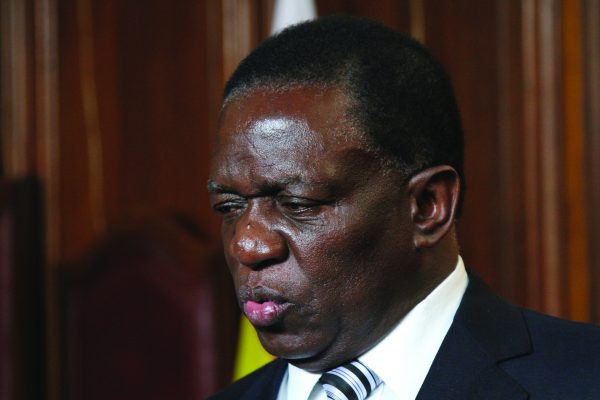
The message from Zimbabwe’s political protagonists in the ongoing election campaign has one common denominator: the economy.
BY NDAMU SANDU
From spaghetti roads to $16 billion foreign direct investment (FDI) in eight months, the economy has been at the top of the agenda, thanks to years of economic mismanagement by Zanu PF since 1980.
Zimbabwe is going through the worst economic patch since the advent of the multicurrency regime in 2009 with company closures, cash shortages and the forex crunch headlining some of the constraints facing the economy.
Manifestos by political parties show there is a clear attempt at confronting the country’s economic setbacks.
Since taking over the reins in November via a military-backed transition, President Emmerson Mnangagwa is at pains to show that he is different from his former boss Robert Mugabe with his message revolving around one catch phrase: Zimbabwe is open for business.
This has seen Mnangagwa attending key business events to lure investors and has reviewed the empowerment legislation prescribing the 51:49% threshold to only diamonds and platinum.
Zanu PF says the new administration has given a new political dispensation which seeks to reposition Zimbabwe in her rightful place in the international community. “In this new era of hope, the people’s aspirations will be fulfilled in a new environment where Zimbabwe is open for business in order to maximise on the emerging international goodwill and confidence as shown by the more than $7 billion inward foreign direct investment within four months of President Mnangagwa ascending to the presidency,” Zanu PF said.
- Chamisa under fire over US$120K donation
- Mavhunga puts DeMbare into Chibuku quarterfinals
- Pension funds bet on Cabora Bassa oilfields
- Councils defy govt fire tender directive
Keep Reading
It seeks an economic growth rate of 6% per annum over the period 2018 to 2023 and targets annual FDI of $5 billion and $10 billion of domestic investments. Zanu PF also plans to increase industrial capacity utilisation to as much as 90% by 2023.
Zanu PF promises to address the infrastructure gap at $14 billion by promoting infrastructure investments in energy, transport, housing and water and sanitation. All infrastructure projects, it says, will be granted “national project” status to reduce the costs by drawing on the available fiscal incentives.
MDC Alliance has pledged to grow Zimbabwe to a $100 billion economy in less than 10 years in the event its candidate, Nelson Chamisa, wins the July 30 polls.
According to its Sustainable and Modernisation Agenda for Real Transformation (Smart), MDC Alliance’s plans to address the challenges besetting the economy are anchored on macroeconomic stability and sound governance of the economy, industrialisation, productivity, savings and foreign direct investments, agro-industrial transformation, mining and beneficiation and gross capital formation.
It says building a $100 billion economy in 10 years is a national duty and obligation given the huge levels of poverty in the country, the development deficit and the rising population levels.
“During the first five years of building the $100 billion economy, the MDC Alliance government will anchor its GDP growth vision on mining, agriculture and tourism sectors of the economy. These three sectors are capable of generating autonomous growth that is driven by utilising idle capacity and favourable external demand,” it said.
The growth would be underlined by assumptions such as a stable macroeconomic environment, average growth rate of 10%, average annual inflation of 6%, savings exceeding 25% of GDP, peace and stability and a stable and certain monetary policy environment.
MDC Alliance says it will reintroduce balanced budgeting to cut runaway expenditure. It promises to rationalise the public service and eliminate ghost workers, thereby reducing employment costs to 30% of total expenditure.
It promises to pursue a re-industrialisation agenda by providing a stimulus package for distressed companies, provision of long-term financing and improving the ease of doing business to attract FDI.











